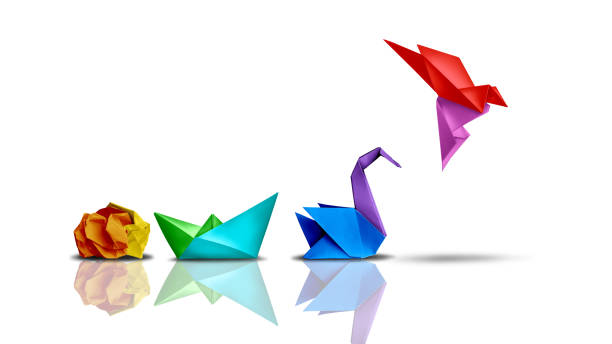In a business world that often celebrates constant hustle, taking time off can feel counterintuitive. Yet research increasingly shows that strategic downtime—particularly in the form of proper holidays—may be your most powerful productivity tool.
The modern workplace has normalized a state of perpetual connectivity. Emails ping at all hours, Slack notifications interrupt dinner, and the line between work and personal life has blurred beyond recognition. In this environment, the concept of truly disconnecting for a holiday can seem almost radical—or worse, irresponsible.
But what if taking that holiday isn't just good for your mental health? What if it's actually a strategic business decision that improves your performance, enhances your leadership, and ultimately drives better results?
The Science of Strategic Recovery
The human brain wasn't designed for the extended periods of cognitive load that modern work demands. Neuroscience research has revealed that our cognitive resources are finite and require regular replenishment. Consider these findings:
- After 90-120 minutes of focused work, our brains naturally begin to seek distraction as attention resources deplete
- Sleep deprivation of just 1-2 hours reduces cognitive performance by up to 32%
- Chronic stress without adequate recovery periods reduces brain volume in areas responsible for decision-making and emotional regulation
- Extended periods without proper breaks lead to "attention residue," where thoughts about previous tasks impair performance on current ones
These findings point to an inescapable conclusion: recovery isn't just a physical necessity—it's a cognitive imperative for anyone who wants to perform at their best.
"Strategic rest isn't the opposite of productivity—it's the foundation of it."
The Business Case for Holidays
Beyond the science, there's a compelling business case for taking proper holidays. Organizations that encourage genuine downtime see measurable benefits:
1. Enhanced Creativity and Problem-Solving
Some of our best insights come when we're not actively thinking about work problems. This phenomenon, which neuroscientists call "default mode processing," occurs when our minds are relaxed and wandering—precisely the state that holidays facilitate.
A study from the University of California found that participants were 41% more likely to solve difficult problems after engaging in activities that allowed their minds to wander. Another study showed that 72% of people report creative breakthroughs while away from work, often during activities like showering, walking, or relaxing on vacation.
2. Improved Decision-Making Quality
Decision fatigue is a well-documented phenomenon where the quality of decisions deteriorates after making many consecutive choices. Holidays provide the extended mental reset needed to restore decision-making capabilities.
Research from Harvard Business School found that judges make more favorable decisions after breaks, with ruling patterns showing a clear decline in quality before breaks and restoration afterward. The same pattern appears in business decisions—leaders who take regular breaks make more balanced, less reactive decisions.
3. Sustainable High Performance
The corporate world is littered with cautionary tales of burnout—high performers who maintained unsustainable work patterns until their health, relationships, or performance collapsed. Strategic downtime prevents this cycle by creating sustainable performance rhythms.
A longitudinal study of consultants found that those who took regular, disconnected holidays maintained higher performance ratings over five years compared to those who remained connected during time off or took minimal vacation. The difference wasn't marginal—it was substantial enough to affect promotion rates and client satisfaction scores.
4. Enhanced Leadership Presence
Leaders who never disconnect don't just harm themselves—they model unsustainable behavior for their teams. Conversely, leaders who demonstrate healthy boundaries by taking proper holidays tend to have more engaged, loyal, and productive teams.
When leaders return from genuine breaks, they bring renewed energy, perspective, and presence to their roles. They're more likely to listen deeply, consider multiple perspectives, and respond thoughtfully rather than reactively—all qualities of exceptional leadership.
From Theory to Practice: Making Holidays Work
Understanding the importance of holidays is one thing; actually taking effective breaks is another. Here's how to ensure your downtime delivers the strategic benefits it should:
Plan Proactively, Not Reactively
Don't wait until you're burned out to schedule a break. Instead, plan holidays proactively throughout the year, treating them as non-negotiable appointments with yourself. Research shows that having planned breaks to look forward to reduces stress and increases productivity in the periods leading up to them.
For maximum benefit, schedule at least one longer break (7+ days) annually, complemented by shorter breaks (3-4 days) quarterly. This rhythm provides regular recovery while allowing for the deeper restoration that only extended time away can provide.
Disconnect Completely
A holiday where you're checking email hourly isn't a holiday—it's remote work in a nicer location. True cognitive recovery requires genuine disconnection from work demands.
- Set clear out-of-office expectations with specific return dates
- Identify a deputy who can handle urgent matters
- Remove work email and messaging apps from your phone during holidays
- Create physical distance from work devices when possible
The most effective leaders don't just disconnect themselves—they create a culture where their teams feel empowered to do the same.
Embrace Psychological Detachment
Physical distance from work isn't enough; psychological detachment is equally important. This means mentally disengaging from work thoughts, concerns, and planning.
Activities that require present-moment attention—like sports, creative pursuits, or immersive cultural experiences—are particularly effective at creating this mental shift. The goal is to be fully where you are, not mentally back at the office while your body is elsewhere.
Prepare for Re-entry
One reason many professionals avoid holidays is the dreaded "return mountain" of emails, decisions, and demands waiting upon return. Strategic preparation can minimize this effect:
- Schedule a buffer day between returning and resuming full duties
- Block the first morning back for processing and prioritizing
- Set clear expectations with colleagues about response timelines after return
- Consider a "holiday email bankruptcy" policy for non-critical matters
With proper boundaries, the benefits of your break won't be immediately erased by a chaotic return.
Leading by Example: Creating a Recovery-Intelligent Culture
For leaders, how you approach holidays sends powerful signals about your organization's values. When leaders never disconnect, it creates implicit pressure for teams to maintain the same unhealthy patterns, regardless of official policies.
Recovery-intelligent leaders recognize that their approach to downtime shapes organizational culture. They:
- Take their full allocation of holiday time and encourage team members to do the same
- Share positive experiences from their time off, normalizing the value of disconnection
- Respect others' boundaries during their scheduled breaks
- Measure performance by results rather than constant availability
- Create coverage systems that allow everyone to take guilt-free time away
These practices don't just benefit individual well-being—they create organizational resilience by preventing the knowledge gaps and succession risks that occur when key people never step away.
The Competitive Advantage of Rest
In a business landscape where burnout has become endemic, organizations that prioritize strategic recovery gain significant competitive advantages:
- Talent attraction and retention: Top performers increasingly seek environments that support sustainable high performance
- Innovation capacity: Teams with regular recovery periods consistently outperform on creative problem-solving metrics
- Execution quality: Well-rested professionals make fewer errors and better decisions
- Organizational resilience: Teams with healthy recovery practices adapt better to unexpected challenges
As business pressures intensify, the organizations that thrive won't be those that work the longest hours—they'll be those that work the smartest hours, complemented by strategic recovery periods that sustain performance over time.
Conclusion: The Strategic Imperative of Downtime
In a business culture that often equates busyness with importance and constant availability with commitment, taking holidays can feel counterintuitive. But the evidence is clear: strategic downtime isn't an indulgence—it's a performance necessity.
The most effective professionals don't succeed despite taking breaks; they succeed because of them. They recognize that recovery isn't the opposite of productivity—it's the essential foundation that makes sustained high performance possible.
So as you plan your next quarter or year, don't just schedule your projects, goals, and deadlines. Schedule your holidays with the same intentionality, recognizing them as the strategic performance investments they truly are.
Your future self—more creative, decisive, and effective after proper rest—will thank you.




